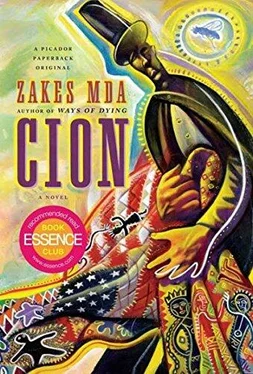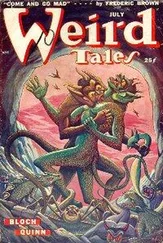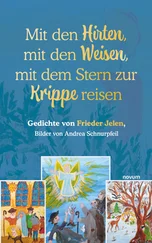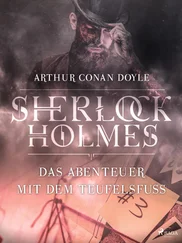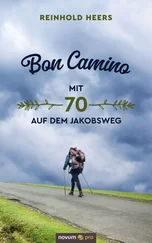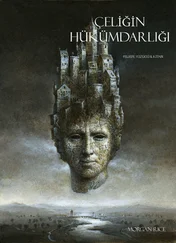“She likes to judge people,” whines Obed. “Mama does.”
“She still makes a bad pickle,” says Nathan.
“It ain’t nice to say things about my grandma,” says Obed.
He is basting the meat on the grill. The young men argue about the best way to barbecue the turkey. They agree on one thing though: Heinz 57 is not the best sauce for wild turkey. Nathan should have come early to boil his secret sauce made of butter, lemon juice, thyme, parsley and broth. They are still arguing on how a dose of beer would or would not redeem the sauce when I decide to join Ruth in the back garden. She is no longer there. I find her in the kitchen chopping the green onions. There are three bowls of chopped cucumber, zucchini and okra ready to be mixed for the pickle. These vegetables are not from her garden but from Kroger since the soil is still too cold for them.
“What happened to Mahlon’s mother?” I ask.
“Nothing happened,” says Ruth. “She died.”
After she ran away with Mahlon’s father her parents declared that she was insane. They had her committed at The Ridges where she died, was buried and became just a number. What has bothered Mahlon lately is that when he was doing well raising animals for sale he forgot about her and never honored her memory. This continues to torture his soul to this day. If only her grave could be found, then erecting a proper tombstone with appropriate words to the effect that she was fondly remembered by her son, daughter-in-law and grandchildren, and asking for her forgiveness, would bring peace and good fortune to the rest of the family.
“I’m gonna show you something,” says Ruth in her conspiratorial tone. I follow her to her bedroom where she gets an old Bible from the top drawer of a dressing table. She takes out an old black-and-white — actually brownish — photograph from the Bible and hands it to me with a flourish as if she has performed a magic trick.
“That’s Mr. Quigley’s mama,” she says. “Ain’t she pretty?”
I can’t see any of the prettiness because the picture is too faint.
“Though I last saw her when I was a little kid I remember her pretty black hair.”
I think pretty black hair is a big thing with Ruth. I remember on a few occasions when she was telling me of Abednego’s descendants she would add with great pride: “They had pretty black hair and high foreheads like white people.” Or when she was telling me of the fugitive slaves who arrived in Tabler Town: “They didn’t look like Africans when they came here. They had pretty black hair. My own great-great-grandfather looked almost like a white man. He had pretty black hair.”
With Mahlon’s mother, of course, it goes without saying that she would have pretty hair because she was Caucasian. Even though I cannot see it so well in the photograph, she adds, I must take her word for it because she remembers it quite vividly. The dress she is wearing is made of feed sacks.
“Back in them days they made dresses from feed sacks.”
Even when she herself was a little girl she wore dresses made from feed sacks, though her very special Sunday dresses were made from muslin or gingham. When her mother sewed the dress she cut the pattern on a newspaper and measured it against her body. Then she cut out the neck and the sleeves. After that she would have the whole pattern and would then use the cut newspaper as a stencil on the material. As I can see in the photograph, that is how Mr. Quigley’s mom’s dress was made.
I reckon that feed sacks are like the maize meal or flour sacks we have back home. I have seen Ruth use that kind of material as backing for some of her quilts.
“There was nothing wrong with her,” Ruth says after considering the photo for some time. “She just fell in love with a colored man. And for that they sent her to a madhouse.
“All because white folks are dead scared of being bred out, which is bound to happen sooner or later,” she adds in her conspiratorial tone.
“I suppose that’s the price you pay if you go around colonizing people and enslaving them,” I say light-heartedly.
“It ain’t no price,” she says quite adamantly. “Though they don’t know it now, it’s good for them. It’s good for the world.”
Just as it happened to her Indian people, it will happen to the white races of the world and to the black races too until everyone looks like the Kilvert people. Her people are harbingers of a new human race.
I have heard this before. Just as I have heard of her boasts of being a Cherokee princess — even though a vindictive Brother Michael has declared publicly at his chocolate church that there is no such a thing as a Cherokee princess — and her claims that her great-great-great-grandmother was a queen in Africa. This last one I heard a lot last January when the Kilvert Community Center celebrated Martin Luther King Jr. Day. At breakfast she hammered it into her children’s heads — who would be going for lunch at the Center that day — that they should always hold their heads high because they were descendants of an African queen. It was the first time I heard her talk of her African strand with so much pride. Most times her African and Native American ancestors are mentioned in generic terms whereas the white ancestors have names and individual histories. Abednego Fairfield and Harry Corbett were resurrected from the depths of collective imagination by the sciolist to remedy this situation.
I cannot pretend to understand some of the contradictions in the lives of my hosts. The people here claim “we don’t belong to nobody,” yet they celebrate Black History Month in February and the Center organizes a big dinner on Martin Luther King Jr. Day. I do not see them celebrating any other day honoring their Native American or Caucasian heritages. Not even St. Patrick’s Day.
By the time Ruth and I return to the barbecue everyone is feasting on the turkey with bread rolls. Mahlon sits alone on the swing smiling at all he surveys. I look at him and I smile back despite myself. I still resent him. God knows I have tried to convince myself that what happens under his roof is none of my business. But somehow I feel that Orpah should be my business. At the same time I feel sorry for him. For what they did to his mama. I am determined to help him find her grave so that he may pay his due respects to it. Why, I’ll even mourn for the poor woman. Maybe after that whatever is wrong with Mahlon will become right again. And Orpah will be free.
She and the children have joined Obed and Nathan at the barbecue stand. The children are still clinging to Orpah, who is obviously having a great time with them. As we walk toward them Ruth says, “See? Nathan’s kids love her. She can easily be their mama.”
“I don’t think she is ready to be anyone’s mother,” I say. Don’t ask me why. I can be so stupid sometimes.
“Todoloo! No woman is never ready to be a mother.”
Late in the evening Nathan and his kids leave. Ruth insists that he takes some of the wild turkey chili with him. I am surprised that Nathan accepts the container so enthusiastically even though he knows very well it is the hen whose death he took so personally.
“You bring it back,” says Ruth. “That ain’t no cheap plastic. That’s Tupperware.”
One thing I know is that Ruth never gives her Tupperware to anyone. Not even to the two men of the house when they went on the wild turkey hunt. She wrapped their sandwiches in foil paper. Not even to me when once I needed to take my bean soup lunch with me on a hike in the woods. I had to use an ice cream bucket.
Evenings are like daytime in late spring. Since the sun is still shining I decide to take a walk. I thought Orpah would go bury herself in her room and play her confounded sitar, but she follows me. I increase my pace when I see that she is about to catch up with me. She also steps up hers to a trot. I give up because I do not want it to be obvious that I am running away from her. She catches up with me. We walk side by side for some time in silence.
Читать дальше
